From the point of view of broad public protection, it will be important that the official inquiry into the Grenfell Tower disaster is allowed to focus on the critical issues - that is to say the cause of the initial fire, why it spread so rapidly and why a complex regulatory regime governing fire codes, design and construction failed utterly to prevent it.

The response of Kensington & Chelsea Council to what happened post-fire is quite another matter and should not be mixed up with the fire issue.
The council’s action in respect of the over-cladding procurement will be far more important to investigate, especially since it appears, from the fire tests conducted on materials provided by councils up and down the country, that K&C was far from alone in thinking all was in order.
As ever following this sort of dreadful event, it is important to inject clarity into the situation.
The silly criticisms of the judge invited to carry out this investigation betray a misunderstanding both of the law and of the intellectual demands placed on any individual trying to: (a) ensure that all relevant information is gathered; (b) put it into context via the knowledge and experience of people who know what they are talking about (ie not the media, not political headbangers and not scapegoat-hunters of any persuasion); and (c) attempt in the final report to get as close to the truth as is possible.
Among other matters, the inquiry will have to deal with the variety of regulatory regimes which have operated since the tower was commissioned in the early 1970s, including what may be conflicting standards in respect of UK and EU requirements - or if not conflicting, then ships that pass in the night.
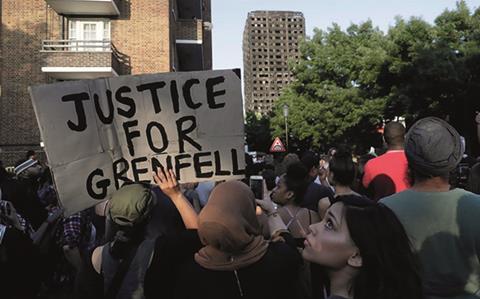
It will also have to put into context the nature of fire testing and its relationship to the reality of construction and subsequent management and refurbishment programmes. This is no easy task, but one measure of the effectiveness of the report will be the way it is received by the construction industry as a whole.
Does it understand the way we build now, and as result of understanding it, identify what needs to continue, change or be abandoned?
Measured conclusions
Despicable treatment of individuals by witchfinder-general broadcasters is the exact opposite of what we hope and expect of a judge who will be accustomed to arriving at measured conclusions in the light of all the evidence available, rather than picking on individuals for vilification.
The leadership of the council has been under consistent attack for its perceived failure to respond to the fire. In retrospect, the only people who could probably have dealt with this unprecedented tragedy were the Army. Perhaps a separate investigation might produce protocols in respect of occasions when it is unreasonable to expect an untrained council administration to cope with something on this scale.
The response of the council post-fire should not be mixed up with the fire issue
On the basis of a meeting I had with deputy leader Rock Feilding-Mellen two years ago (at his invitation), I do not recognise the picture being painted of him as some sort of ruthless Mr Beadle.
Our discussion concerned the sorry state of council estates in the Royal Borough and his desire to do something about them, particularly by increasing densities to create more units, to make some available for sale - to help fund regeneration - but not at the expense of tenants.
I gave some examples of such approaches from my Cabe experience, and left the meeting feeling cheered up that a Conservative borough still had an interest in social housing policies. Perhaps towers like Grenfell will now be demolished, and the above strategy implemented. It is not a bad one.
As for the inquiry, the other broad question that one hopes will be addressed (because it will be dealing with a particular instance of procurement and will need to put it into context), is the way that risk transfer, a polite term for passing the buck, has become endemic throughout construction. T
his is because it is part of the ideology of project management and the worst exponents of design-and-build. It is not the same thing as being risk-averse, although that is another congenital condition. So what happens if financial risk is at odds with fire safety?
This is going to be a rough ride.
























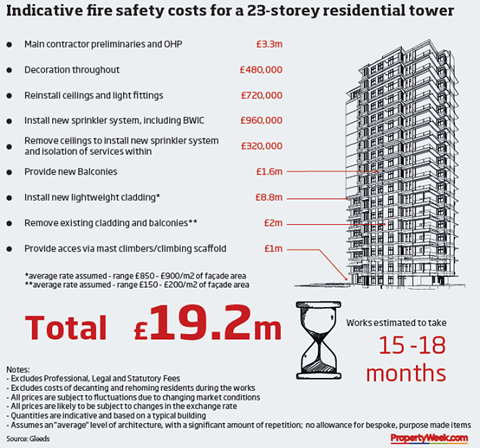
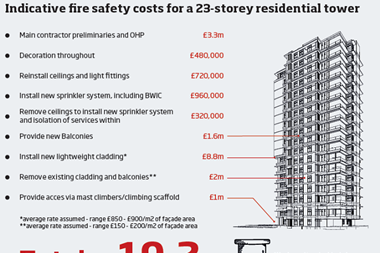
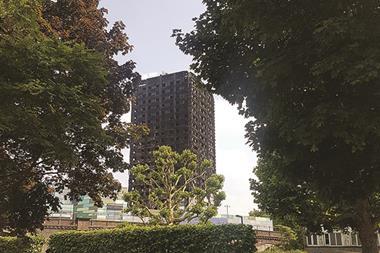
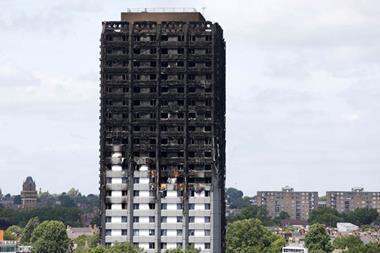


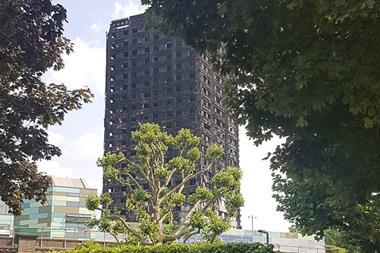
1 Readers' comment